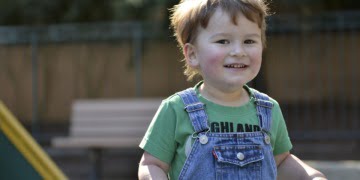Key Notes
- Autism needs to be identified and dealt with at an early age
- It may never be completely finished but you can control the symptoms
- Some signs include: the child prefers to be alone, they don’t smile much and they have unusual eating habits
Some people think that only boys can be autistic or that all autistics are savants. The truth is an autism spectrum disorder (ASD) affects people of all genders and ages. In this article, we will discuss ten signs of autism in 12 month old. If you suspect that your child may have ASD, please consult with a doctor for diagnosis and treatment.
The Child Rarely Smiles
One of the first things you might notice is that your child rarely smiles. This is especially true when you try to get them to smile on cue, such as during a photo. Your child may also have a flat or monotone way of speaking.
When they do laugh, it may sound forced. It’s important to remember that all babies are different, and some may smile less than others. However, if you notice that your child never smiles, it could be a sign of autism.
They Don’t Make Eye Contact
Another common sign of autism is a lack of eye contact. Your child may not look at you when you’re talking to them, or they may only make fleeting eye contact. This can be very distressing for parents, as making eye contact is such an important part of communication and bonding.
It’s important to remember that not all children with autism have a lack of eye contact. Some may make eye contact often, but they may not hold it for very long.
They Prefer To Be Alone
Autistic children often prefer to be alone rather than interacting with others. This may manifest as your child spending a lot of time playing by themselves or not wanting to go to social gatherings. It’s important to remember that not all children with autism are introverted. Some may be very social but just prefer not to interact with certain people or in certain situations.
- They like to stay alone and quiet.
- They don’t want to play with their toys anymore.
They Resist Changes in Routine
Children with autism often resist changes in routine, whether it’s a change in their daily schedule or something as simple as the clothes they wear. This can be very challenging for parents, as it’s often difficult to avoid changes in routine. However, it’s important to try to stick to a regular schedule as much as possible and to give your child plenty of warning before any changes are made.
Infrequent Babbling
One of the earliest signs of autism is a lack of babbling. Babies typically babble as early as six months old, but if your child doesn’t start babbling until later than 12 months, it could be a sign of autism. This doesn’t mean that all babies who don’t babble by 12 months are autistic, but it’s something to keep an eye on.
They Are Easily Overstimulated
Children with autism can be very easily overstimulated. This may manifest as your child getting overwhelmed by loud noises or bright lights or becoming agitated when too much is going on around them. It’s important to remember that all children have different tolerances for stimulation, and what may be over stimulating for one child may not be for another. If you notice that your child is particularly sensitive to certain stimuli, it could be a sign of autism.
They Have Delays in Development
One of the most common signs of autism is a delay in development. This may manifest as your child not reaching certain milestones, such as sitting up, crawling, or walking, by the expected age. It’s important to remember that all children develop at different rates, and a delay in one area does not necessarily mean a delay in all areas. However, if you notice that your child is significantly behind their peers in terms of development, it could be a sign of autism.
They Are Hyperactive or Inattentive
Children with autism can sometimes be hyperactive or inattentive. This may manifest as your child constantly moving around, fidgeting, or being unable to sit still for very long. Alternatively, they may be very passive and not seem to pay attention to anything going on around them.
They Have Unusual Eating Habits
Children with autism often have unusual eating habits. This may manifest as your child being very picky about what they eat or refusing to eat certain foods. It’s important to remember that not all children with autism have unusual eating habits and that many children without autism also have picky eating habits.
They Display Repetitive Behaviors
Children with autism often display repetitive behaviors. This may manifest as your child repeatedly doing the same thing over and over or engaging in stimming behaviors such as flapping their hands or spinning around. It’s important to remember that not all children with autism display repetitive behaviors and that many children without autism also engage in stimming behaviors.
They Are Poorly Socialized
Children with autism often have poor social skills. This may manifest as your child not being able to hold a conversation, not understanding social cues, or preferring to play alone. It’s important to remember that not all children with autism are poorly socialized, and many children without autism also have difficulty interacting socially.
They Are Easily Frightened
Children with autism can often be very easily frightened. This may manifest as your child being scared of things that other children their age aren’t afraid of, such as loud noises or strangers. It’s important to remember that all children are different, and what may be frightening for one child with autism may not be frightening for another.
They Have Trouble with Communication
Children with autism often have trouble with communication. This may manifest as your child not being able to speak, having difficulty understanding what others are saying, or using language in an unusual way.
If you notice any of these signs in your child, it doesn’t necessarily mean that they have autism. However, if you are concerned about your child’s development, it is important to consult with a doctor. Early diagnosis of autism can be very beneficial for the child. Finally you can read here the signs of autism in toddlers age 2.






























